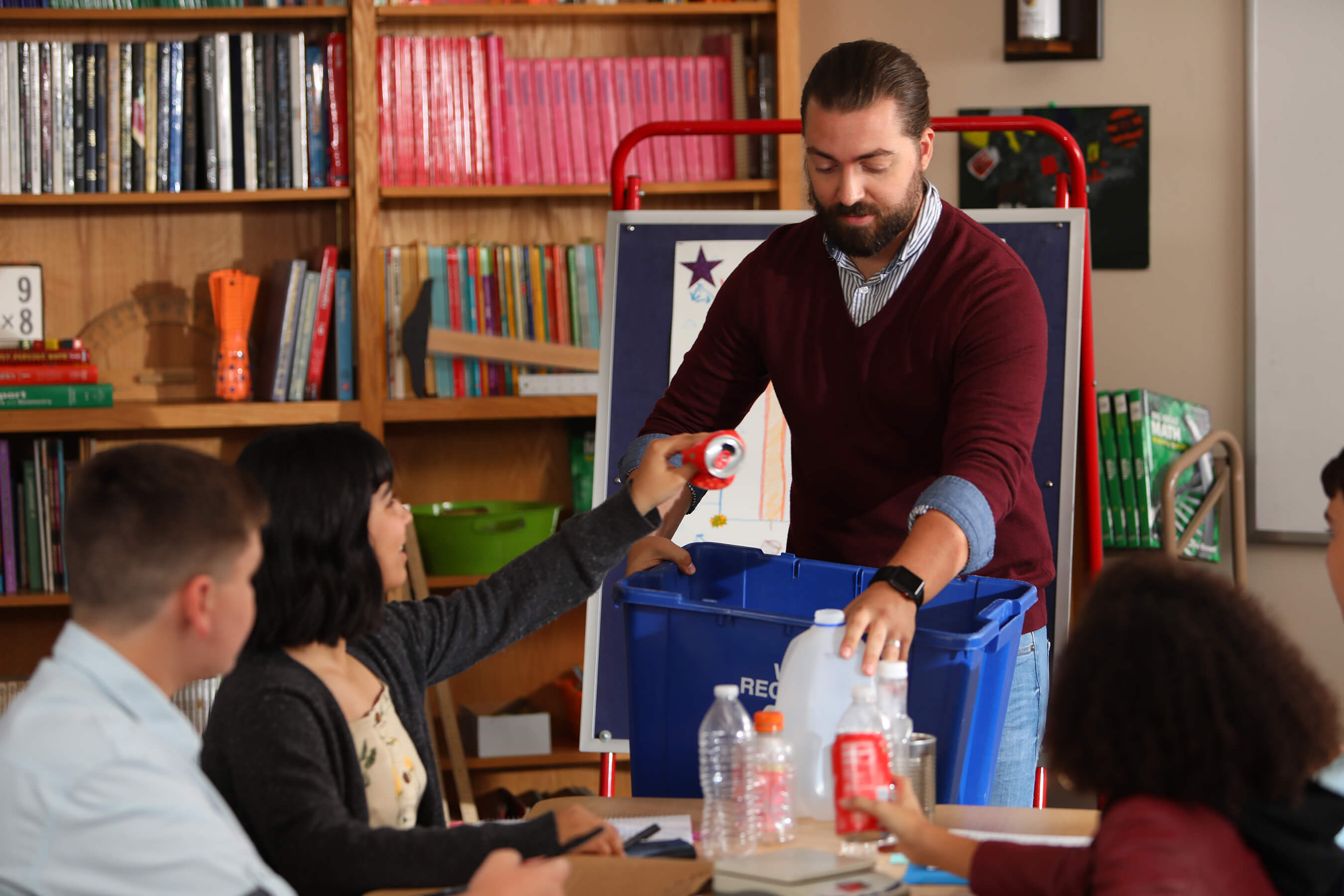Local waste and recycling company introduces recycling education to K-12 students
By Pete Keller
What’s the key to the future of recycling and environmental responsibility? Simply, it is our youth. Teach them early and they will not only pioneer and practice recycling in the future, but train their parents and family members the best recycling practices, as well.
K-12 Program
That’s the premise behind an innovative and robust new pre K-12 curriculum program recently launched by Republic Services, an industry leader in U.S. recycling. The Phoenix-based company has introduced a free, downloadable curriculum designed to incorporate recycling education in schools and support students’ real-world learning about sustainability and how to recycle properly.
The Recycling Simplified Education Program curriculum is structured to provide educators with the flexibility to teach the lessons as a complete unit or incorporate into existing curriculum plans and align with individual grade-level curriculum standards in multiple disciplines such as science, STEM, English, language arts and literacy, math and social studies.
Lessons within each grade range build upon students’ current understanding and help them gain greater awareness of the broader environmental, sustainability and societal issues related to recycling and the conservation and reuse of natural resources.
Recycling is Important
The majority of Americans—nearly 90%, according to a recent survey—agree that recycling is important but are confused about what materials can and can’t be recycled. And kids want to make a difference in the world around them and are really engaged by activities related to protecting the environment and saving natural resources. With that in mind, Republic Services designed the Recycling Simplified program to provide interesting and fun ways for students to learn about recycling properly and to share that information with their families.
In the program, students learn about the recycling process from start to end, including how improperly recycled items can contaminate other recyclables. For example, in the lesson called “Recycling Detectives,” students work together in small groups to sort cards with pictures of common items into recyclables, non-recyclables, and potential recyclables. Then they practice collaborative and critical thinking skills in deciding how some of the potential recyclables can be made recyclable.
Teaching the ABCs of Recycling
A recent Republic Services survey shows that while 88% of Americans agree recycling is important, they are confused about what materials belong in the recycling bin. In fact, 41% of the respondents failed a basic recycling quiz, despite 69% giving themselves an A or B when asked how much they know about recycling.
The education program is available for free online at RecyclingSimplified.com along with tips, videos and resources to become a better recycler and reduce contamination rates.
Keep up with all of Green Living’s content by visiting our website.
Pete Keller is vice president of recycling and sustainability at Republic Services.







